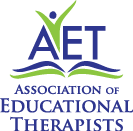Collaborating with an Educational Therapist: The Educational Therapist-Allied Professional Partnership
An educational therapist is skilled at gathering, synthesizing, and coordinating information from other specialists in order to develop and implement remedial programs. In addition to working closely with parents and school personnel, educational therapists interface regularly with a multitude of allied professionals. These allied professionals may include: speech and language pathologists, psychotherapists, educational psychologists, school counselors, marriage and family therapists, occupational therapists, neuropsychologists, physicians, or optometrists.
Contact between an educational therapist and other professionals may be made at the initial time of referral and then may continue throughout the intervention. Exchange of reports, telephone conferences, and email are the most common means of communication.
Many benefits can accrue for the client when professionals confer. With the client’s consent, each professional can share relevant background information, diagnostic testing, and clinical impressions to broaden and further each other's knowledge. Goals and strategies that complement the work of each professional with the client can be developed, shared, and carried out.
This collaboration frequently leads to a more powerful intervention because of the broader perspective it provides. Educational therapists hold confidentiality in high ethical regard and obtain a written consent to release information prior to conferring with other professionals.

![[banner]](/images/page-banners/inner-banner-03.jpg)
![[sponsor logo]](/templates/common/images/sponsors/westmark-school.jpg)
![[sponsor logo]](/templates/common/images/sponsors/charles-armstrong-school.jpg)
![[sponsor logo]](/templates/common/images/sponsors/mc-lean-school.jpg)
![[sponsor logo]](/templates/common/images/sponsors/ucsc-logo.jpg)
![[sponsor logo]](/templates/common/images/sponsors/schwab-logo.jpg)